Poll: Republican support for Afghan refugees wanes as Trump, Fox News promote anti-immigrant claims
Republicans have become more skeptical about whether refugees fleeing Afghanistan should be allowed to come to the United States, according to a new Yahoo News/YouGov poll. The shift in Republican attitudes toward helping vulnerable Afghans following the U.S. military’s withdrawal from the country seems to reflect the recent promotion of anti-refugee rhetoric by several prominent conservative figures.
The survey of 1,605 U.S. adults, which was conducted from Aug. 30 to Sept. 1, found that overall support for resettling Afghan refugees in the United States has declined over the previous two weeks from 49 percent to 44 percent, while uncertainty over the issue has grown by 7 percent — with 34 percent of respondents saying they are “not sure” whether refugees fleeing Afghanistan should be allowed to come to the U.S., compared with 27 percent two weeks earlier.
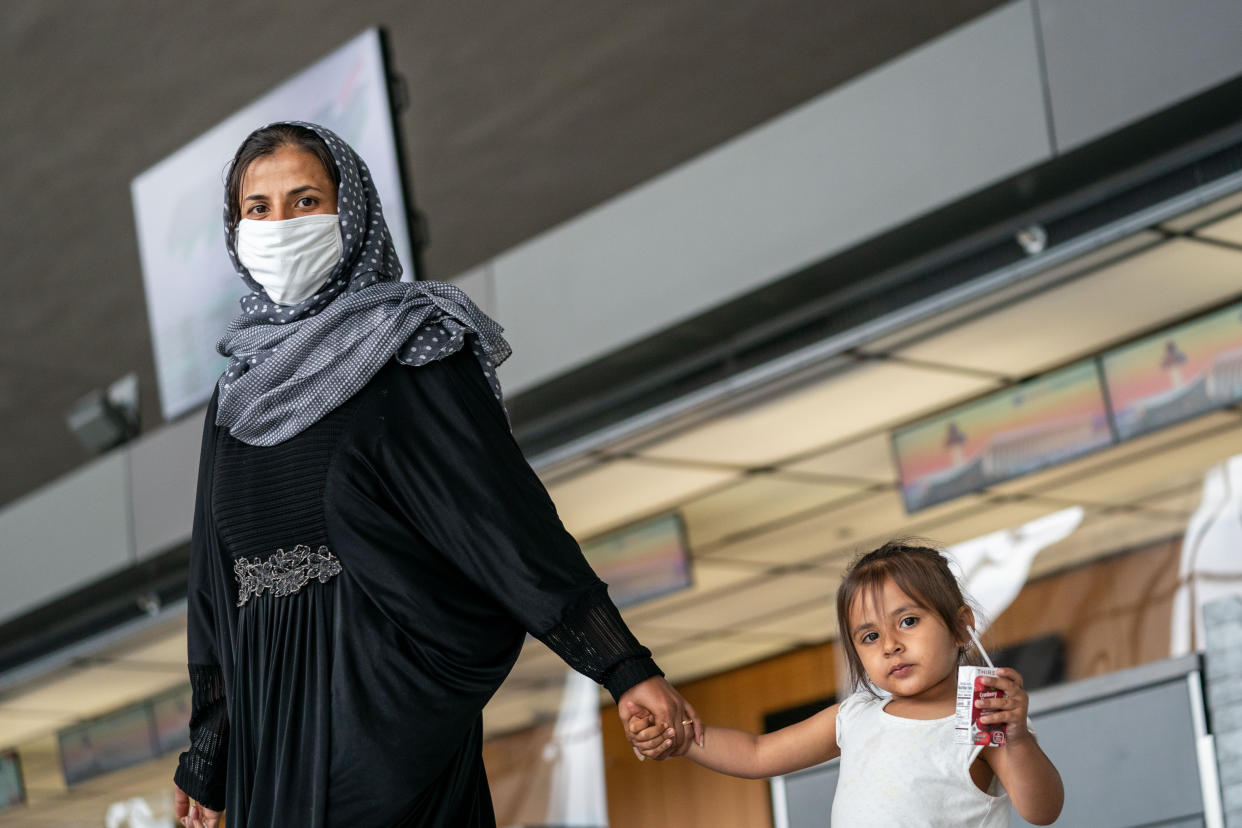
This shift has been driven almost entirely by Republicans, whose support for Afghan refugees coming to the U.S. dropped from 40 percent to 32 percent, while their uncertainty increased by 12 percentage points, from 24 percent to 36 percent. Opposition to helping Afghan refugees also dipped during this time period, though much less significantly, from 24 percent to 22 percent overall, and from 37 percent to 31 percent among Republicans.
The fate of vulnerable Afghans, particularly those who assisted the U.S.-led military coalition over the last 20 years, has been the subject of mounting, largely bipartisan concern since President Biden announced in April that U.S. troops would withdraw from the country by Aug. 31. Last month, after the Afghan government and military collapsed, allowing the Taliban to quickly seize power, Republicans and Democrats alike criticized Biden for failing to begin mass evacuations sooner, with many urging him to delay the withdrawal in order to ensure the safety of Afghan translators, drivers, guides and others, along with their families, whose affiliations with the U.S. government put them at heightened risk of reprisals from the Taliban.
But as the U.S. military scrambled to evacuate more than 124,000 civilians, most of them Afghans, from the country before its final departure from Kabul this week, some of the loudest voices on the far right have deviated from the GOP rank and file, who have traditionally been in favor of protecting those who’ve risked their lives to help Americans.
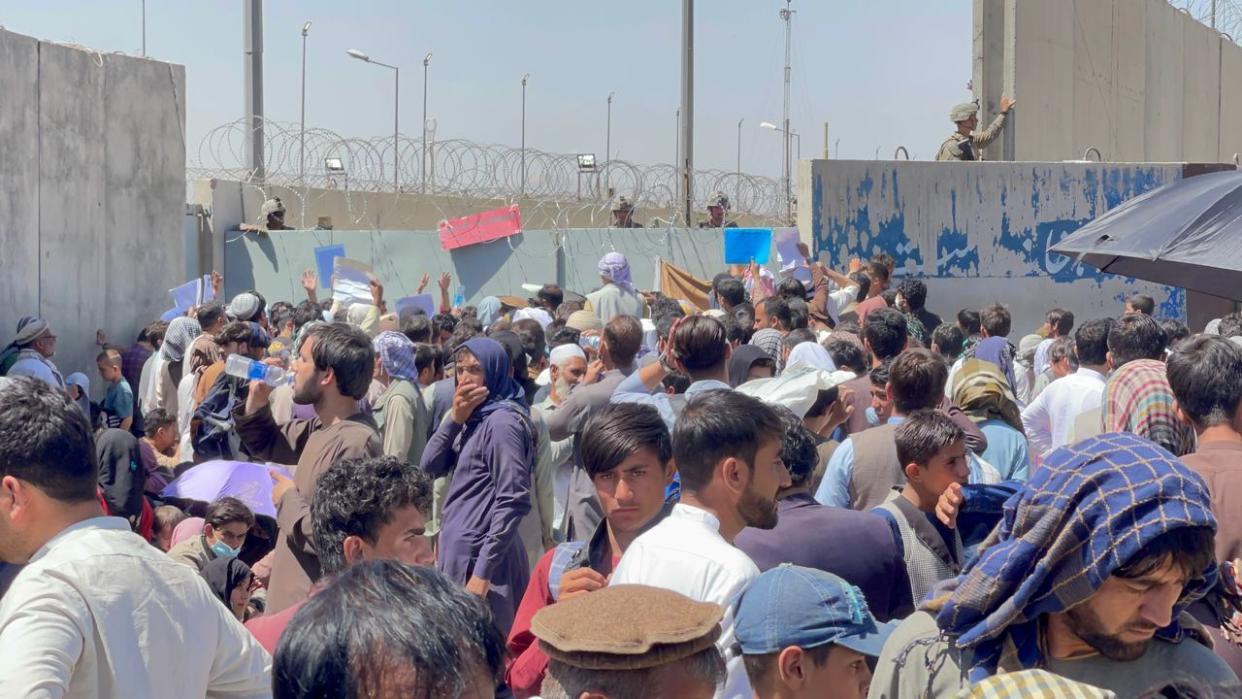
Instead, figures such as former President Donald Trump, House Minority Leader Kevin McCarthy and Rep. Marjorie Taylor Greene, R-Ga., have sought to use the Afghan refugee crisis to further their anti-immigrant agenda, mostly by portraying those trying to flee the Taliban as unvetted, potential terrorists who pose a threat to American citizens.
Such unsubstantiated assertions about the supposed threat from Afghan refugees have also been promoted by Fox News hosts Tucker Carlson and Laura Ingraham, whose primetime shows reach millions of conservative-leaning Americans.
“Is it really our responsibility to welcome thousands of potentially unvetted refugees from Afghanistan?” Ingraham asked during her show on Aug. 16. Carlson has claimed that “we don’t know” who is being evacuated from Afghanistan, and compared the resettlement of Afghan refugees to an invasion of the U.S.
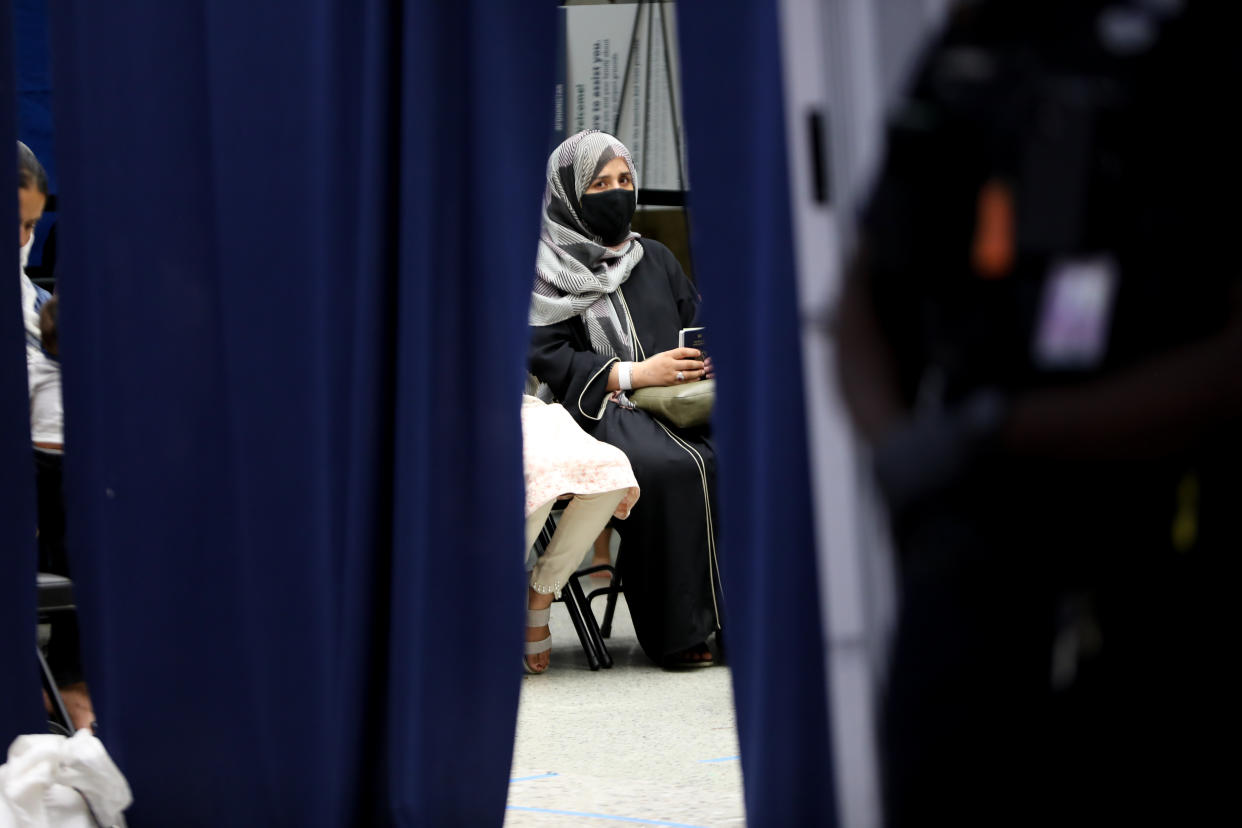
It appears, based on the results of the latest Yahoo News/YouGov poll, that this type of messaging is having a real effect on those receiving it. Not only has support for Afghan refugees decreased among Republicans, but when respondents were asked whether the U.S. is doing enough to thoroughly vet Afghans who want to come into the country, answers were clearly split along partisan lines. According to the poll, 62 percent of Republicans said “no,” compared with just 8 percent who said “yes” and 30 percent who were unsure. Democrats, on the other hand, leaned in the opposite direction, though they were far less certain in their stance: 28 percent said they think Afghans who want to come to the U.S. are being sufficiently vetted, while 21 percent said they do not and 51 percent were not sure.
It’s true that U.S. officials have yet to provide a detailed breakdown of exactly who is included among the more than 100,000 at-risk Afghans the State Department has said were evacuated from Afghanistan as of Aug. 31. Several news outlets reported this week that, according to a State Department official, a “majority” of Afghan allies who have applied for Special Immigrant Visas, or SIVs, because of their work with the U.S. government or military were not able to get out during the evacuation operation.
But all refugees, regardless of where they’re from, must pass extensive background checks before they can be approved for resettlement in the United States. And those who are eligible for SIVs are subject to even more intense scrutiny.
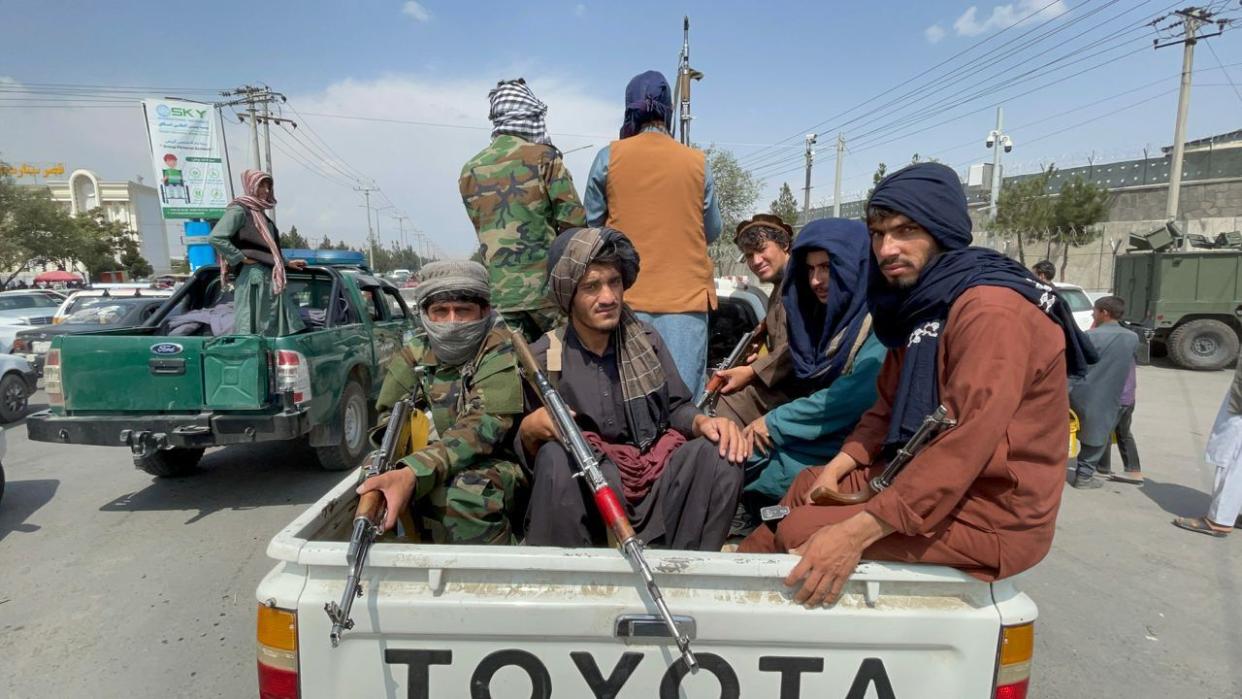
In addition to any initial screening they would have had to pass in order to work for the U.S. government in Afghanistan, those who want to apply for a Special Immigrant Visa must complete a 14-step vetting process in which they are required to demonstrate not only that they were employed by or on behalf of the U.S. government for at least two years, but that they provided “faithful and valuable service to the U.S. government.”
The process of getting approved for an SIV can take years, and U.S. officials have said that the Afghanistan evacuation operation prioritized those in the SIV program who either had already been approved for a visa or had gone through at least the initial stages of the vetting process, allowing those in the latter group to complete that process from a military base in the U.S. rather than in Afghanistan.
Following the Taliban takeover, the State Department created another special designation for other at-risk Afghans who do not qualify for the SIV program, such as those who worked on U.S.-funded projects or for American media organizations. Afghans who qualify under this category are considered refugees.
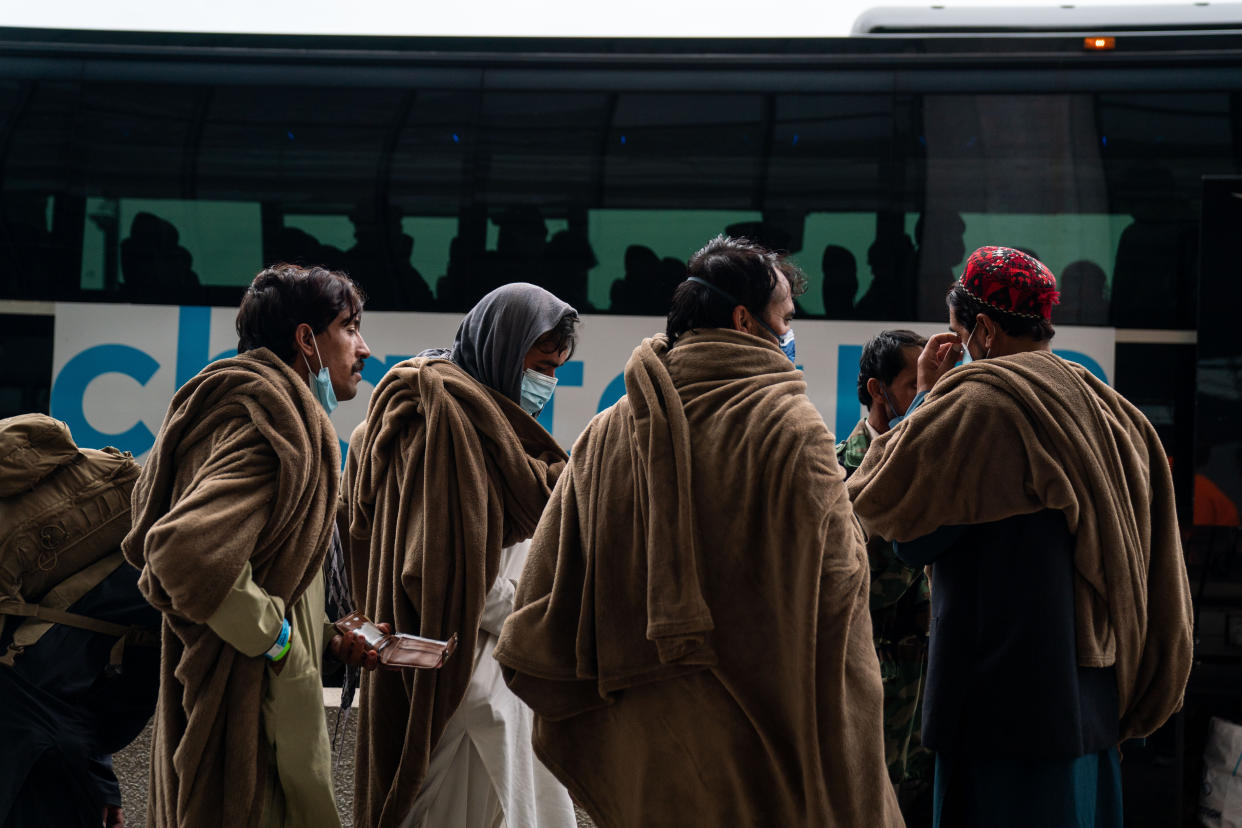
Though officials have been relatively vague about specific aspects of the vetting process for evacuees, they’ve repeatedly insisted that all Afghans evacuated from the country (except those with U.S. passports or green cards) have first gone to intermediate bases in Europe and the Middle East, where they must undergo a rigorous screening of their biometric and biographic data by counterterrorism, homeland security and FBI professionals.
“Unless and until they complete that vet,” State Department spokesman Ned Price said Thursday, “they will not be in a position to come to the United States.”
The findings of the poll also suggest that all Afghan refugees are not created equal in the eyes of Americans, regardless of political affiliation. While 65 percent of all respondents expressed support for “Afghans who worked with the U.S. military or its allies,” just 43 percent said we should help resettle “Afghans who didn’t work with the U.S. military or its allies but believe they are at risk from the Taliban — such as journalists, humanitarian workers and women.”
This preference toward helping U.S. allies was largely bipartisan, with 58 percent of Republicans and 57 percent of Democrats saying they support giving Afghans who worked with the U.S. military priority over other refugees and asylum seekers.
____
Read more from Yahoo News:


